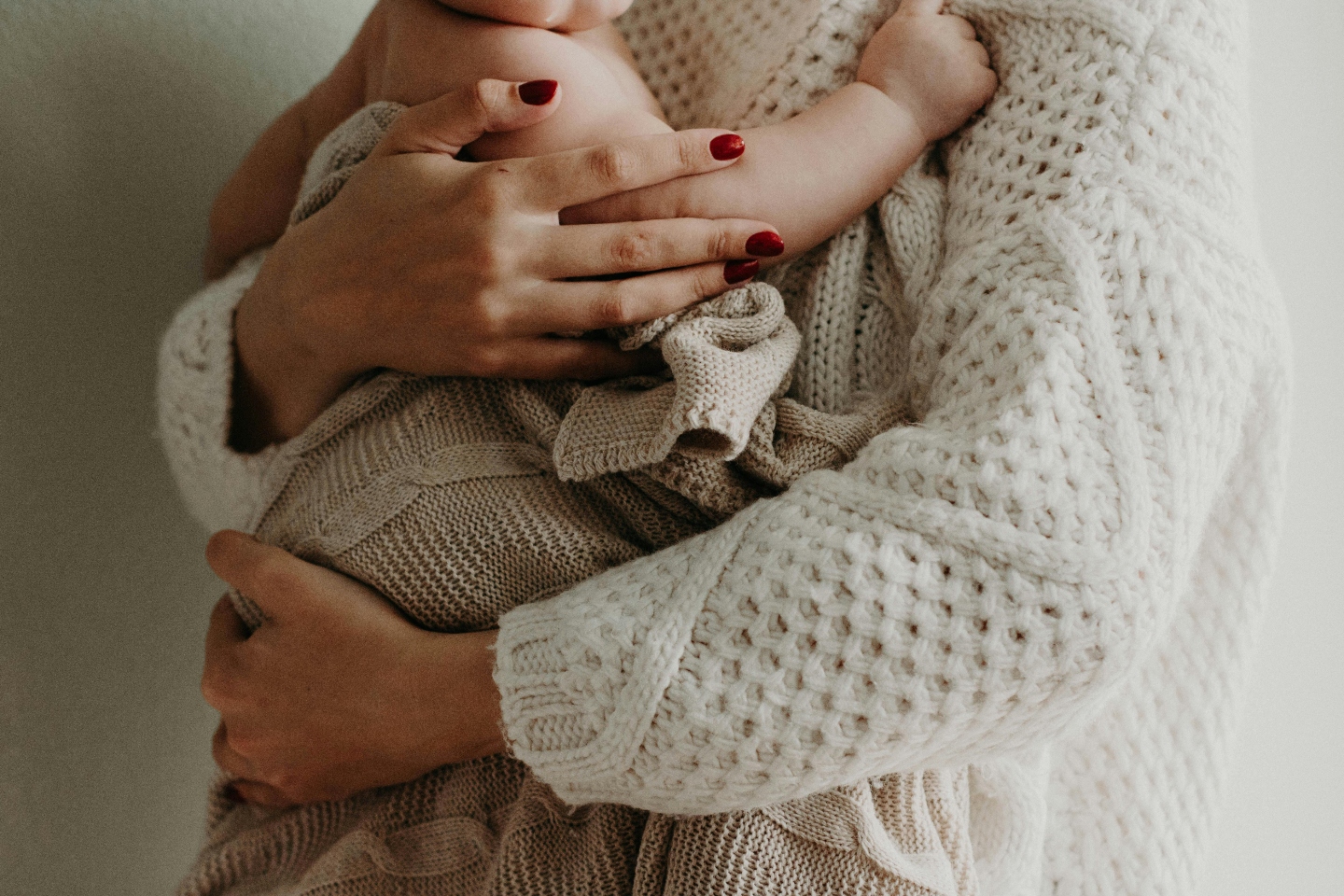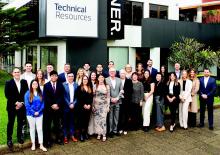This year’s World Health Day centres around improving maternal and newborn health, and kickstarts a year-long campaign from April 7 to boost efforts to end preventable deaths.


This year’s World Health Day centres around improving maternal and newborn health, and kickstarts a year-long campaign from April 7 to boost efforts to end preventable deaths.
The Healthy Beginnings, Hopeful Futures campaign will call on government, researchers and healthcare providers to prioritise women’s long-term health and wellbeing, and recognise that healthy families and communities are built upon the health of mothers and babies.
Nearly 300,000 women die across the world every year due to pregnancy or childbirth, more than two million babies die in their first month of life and a further two million babies are stillborn, according to current statistics.
The World Health Organization says this equates to about one preventable death every seven seconds.
Many Western Australian organisations are working hard to improve health outcomes for women and babies and promote healthier communities across the state.
Subiaco-based Women and Infants Research Foundation has spent nearly 50 years advancing maternal and newborn health and wellbeing, and has been instrumental in pioneering translational research and innovative health initiatives, both in Australia and on a global scale.
The foundation has strong focus on preventing preterm birth, improving neonatal care, and enhancing long-term maternal health.

Women and Infants Research Foundation chief scientist Professor Matt Kemp says an estimated 13.4 million babies are born too soon each year across the world.
WIRF's WA Preterm Birth Prevention Initiative has been particularly impactful, reducing preterm birth rates in WA by 8 per cent.
This led to the foundation's partnership with the Preterm Birth Prevention Alliance to expand the initiative across the nation, achieving an 11 per cent reduction in preterm births in Australia.
These results demonstrate the power of evidence-based interventions – such as improved screening, progesterone therapy and state-wide education programs – in preventing early births and giving babies a stronger start in life.
Despite the improvements to babies health delivered through the WA Preterm Birth Prevention Initiative, WIRF chief scientist Professor Matt Kemp said there was still a significant amount of work to do.
“Preterm birth remains the leading cause of death and disability among children under five, with one in twelve Australian babies born prematurely. Among Aboriginal communities, this rate is almost double,” he said.
“Globally, an estimated 13.4 million babies are born too soon each year, with the most vulnerable facing severe complications such as cerebral palsy, chronic lung disease, blindness and developmental delays.”
“Our research has shown that with the right measures in place, we can dramatically improve survival rates and long-term health outcomes for preterm babies.” WIRF chief scientist Matt Kemp
Advancing research
WIRF leads vital research projects working to improve survival rates and long-term health outcomes for babies and mothers.
The institute is at the forefront of research into antenatal steroid therapy, a critical treatment that accelerates lung development in preterm babies, which significantly reduces the risk of respiratory distress syndrome – a leading cause of neonatal mortality.
WIRF has also been developing artificial placenta technology, a revolutionary approach aiming to mimic the natural womb environment, offering a safer and more supportive alternative to traditional neonatal intensive care.
Professor Kemp said the success of this technology could dramatically improve outcomes for extremely preterm infants, redefining the way neonatal care is delivered.
“Healthy beginnings are crucial for lifelong wellbeing,” he said.
“Our research has shown that with the right measures in place, we can dramatically improve survival rates and long-term health outcomes for preterm babies.”
Professor Kemp added that while WIRF’s research is rooted in WA, its impact extends beyond national borders.
“The health challenges we seek to address at home are global in nature, meaning that their resolution requires partnerships with leading global institutions,” he said.
“Recognising this, WIRF has formed strategic partnerships with institutions in Japan and Singapore. These collaborations provide access to cutting-edge research infrastructure, international expertise, and diverse study populations, ensuring that WIRF remains at the forefront of scientific discovery.”

Meanwhile, an Australian-first study funded by Perth Children’s Hospital Foundation (PCHF) has made a ground-breaking discovery in respiratory syncytial virus (RSV) prevention, revealing that a new immunisation program for babies was almost 90 per cent effective in reducing hospitalisation rates.
RSV is a life-threatening virus that affects the airways and lungs, sending 3.6 million children to hospital worldwide each year. It is especially dangerous for vulnerable young babies at high risk of potentially deadly complications such as severe bronchiolitis and pneumonia.
The PCHF-funded REVIVE study investigated RSV-related hospital admissions following the introduction of WA’s immunisation program providing babies with nirsevimab.
Published in the Journal of Infection, the study shows that more than 500 Western Australian families avoided hospital stays last winter due to the positive results of the immunisation program led by the state government’s Department of Health. WA led the way as the first Australian state to offer the free RSV immunisation program for all babies born throughout the winter season.
REVIVE study lead Ushma Wadia said Western Australian researchers had a long-term commitment to providing protection against RSV.
“Last year, the WA Department of Health led the way as the first Australian state to offer the free RSV immunisation program for all babies born throughout the winter season and this was extremely successful,” Dr Wadia said.
More than 24,000 doses of nirsevimab were distributed from April to September last year, providing coverage to 85 per cent of newborns and 66 per cent of a ‘catch-up’ cohort of babies in the lead-up to their first winter season.
“Our team worked alongside WA Health to evaluate hospitalisation rates at Perth Children’s Hospital, Fiona Stanley Hospital and Joondalup Health Campus, and allowed us to become the first place in the southern hemisphere to successfully demonstrate the major impact of RSV immunisation in young babies,” Dr Wadia said.

Dr Ushma Wadia leads the REVIVE study, funded by PCHF.
The study also investigated the effect immunisation had on the severity of RSV cases, and found that nirsevimab recipients were 60 per cent less likely to require oxygen or assistance with their breathing if admitted with RSV.
For Charlotte Duffy, it gave her confidence that her twin babies Finn and Ember would be protected when she took them home.
“They both spent nearly a month at PCH when they were born,” Ms Duffy said.
“Finn in particular took a while to manage his breathing himself.”
Finn and Ember were offered RSV immunisation before being discharged. With the twins about to celebrate their first birthday, Ms Duffy said the study’s results were “amazing”.
“The vaccine research is really important and I’m really grateful that we got it (the RSV immunisations). Hopefully, it’s something that will continue to be available and accessible for everyone,” Ms Duffy said.
PCHF chief executive Carrick Robinson said the results of the ground-breaking study were extremely promising.
“With a dramatic reduction in hospital admissions for RSV, WA is setting the standard in protecting our youngest and most vulnerable,” Mr Robinson said.
“Not only does this ease the pressure on our hospitals and emergency departments, but it also ensures families are spared the stress and strain of hospital stays.
“Through funding innovative initiatives like this, we have the potential to make a real difference in the lives of children and their families – as well as reducing the burden on the healthcare system – not only in WA but across Australia for years to come.”

Charlotte Duffy's twin babies Finn and Ember were offered RSV immunisation before being discharged from PCH.
The success of WA’s nirsevimab program also contributed to the rollout of a national $174.5 million RSV immunisation program, now underway for all pregnant women and newborn babies. It is hoped that the program will keep 10,000 Australian babies out of hospital.
The REVIVE study was made possible thanks to researchers at the Wesfarmers Centre of Vaccine and Infectious Diseases, based at The Kids Research Institute Australia.
For Professor Chris Blyth, Head of Wesfarmers Centre of Vaccines and Infectious Diseases and PCH physician, it is the global significance of this work that is hugely significant.
To support more ground-breaking research here in WA, donate to PCHF today at: pchf.org.au/donate
Listening to women and supporting family wellbeing
A key theme of this year’s World Health Day is listening to women and supporting family wellbeing.
Ronald McDonald House Charities WA is best known for its services supporting the wellbeing of families when a child is ill or injured.
The organisation delivers these services through enabling family-centred care, a model of care which is inclusive of parents and respects the important role families have in restoring and maintaining health.
RMHC WA chief executive Peter King said the organisation works closely with WA’s maternity, child, and adolescent health systems to enable family-centred care by delivering services that remove barriers, strengthen families, and promote healing when children from regional and rural Western Australia need healthcare in Perth.
“In a state as vast as Western Australia, many families find themselves needing to travel far from home and the support of family and friends to access the medical care their child needs; causing additional pressures on their emotional and financial wellbeing,” Mr King said.
“Families tell us that by being together and having access to services that make being far from home and community a little easier brings them a much-needed sense of certainty during some of the toughest times." Ronald McDonald House Charities WA CEO Peter King
According to RMHC WA, 6 per cent of the families it supported in 2024 were high risk antenatal and critical neonatal patients, requiring treatment at King Edward Memorial Hospital, which is WA’s largest maternity hospital and the only referral centre for complex, high acuity pregnancies.

Ronald McDonald House Charities WA's supports family wellbeing when a child is ill or injured.
“With an average stay of 25 days – more than three times longer than the overall average stay for other diagnosis – our around-the-clock supported accommodation is vital and provides essential support to these families at a critical time,” Mr King said.
To ensure the essential services provided are improving the overall wellbeing of the families they support, RMHC WA – in partnership with Social Ventures Australia – developed a robust Impact Framework.
The framework enables the charity to quantify wellbeing outcomes, while also providing an opportunity to listen to family feedback and gain valuable insights to help continuously improve program and service delivery to better support family wellbeing.
For new mothers in particular, being far from home can be extremely challenging. To alleviate additional pressures, RMHC WA developed services like transportation from their houses to King Edward Memorial Hospital to ensure mothers whose newborn is in critical care can be by their child’s side, and the installation of in-room refrigerators to appropriately store breast milk.
“Families tell us that by being together and having access to services that make being far from home and community a little easier brings them a much-needed sense of certainty during some of the toughest times,” Mr King said.
To support RMHC WA serve more families, please donate at rmhcwa.org.au
















